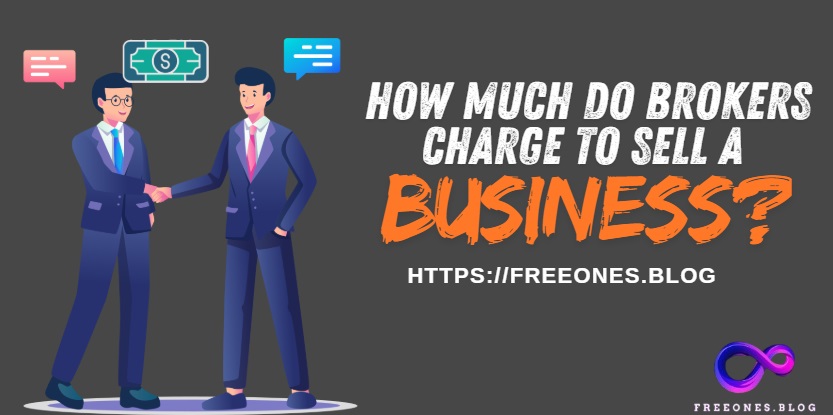Business selling is always a very complicated procedure that cannot be always done without the help of a business broker. These brokers can therefore be described as agents who facilitate between buyer and sellers. However, one common question among business owners is: How Much Do Brokers Charge to Sell a Business? Let’s break it down.
Understanding Business Broker Fees
The fee that business brokers are paid usually ranges or is based on the amount that is to be sold to the buyer for the business. This commission can range and is commonly between five to fifteen percent. For instance, if your business was to be sold at $1 million then you could be charged between $50,000 and $150,000. Besides this some of the brokers may also charge for a fixed initial sum of money or for the amount spent on marketing.
Who Pays Business Broker Fee?
The business broker fee is normally paid by the seller. This is due to the reason that the broker is under contract from the seller to get the best deal of the deal. The payment plans, although usually transparent compared to most industries, have variations which should be agreed with the broker before they are set.
Factors Influencing Business Broker Fees
Several factors influence how much a business broker charges:
- Size of the Business: Smaller businesses usually incur higher percentage fees (e.g., closer to 15%) because the absolute dollar value is lower. Larger businesses might see rates closer to 5-10%.
- Industry: Businesses in niche markets may require specialized brokers, who might charge higher fees.
- Region: Fees can vary based on geographic location and market demand.
- Complexity: Transactions that involve complicated financials or legal structures may result in higher fees.
How Much Do Business Brokers Make?
The earnings of a business broker depend on the number and value of transactions they handle. On average, a business broker might earn:
- Annual Salary: Between $60,000 and $150,000, depending on experience and market conditions.
- Commission Per Deal: For a single deal worth $1 million at a 10% commission, a broker earns $100,000.
Experienced Business Brokers handling high-value transactions in lucrative markets can earn significantly more.
Is the Broker Fee Negotiable?
Certainly, the business broker fees commonly pose as negotiable especially depending on the agreement that the two parties make. Other aspects such as reputation of the broker and the services offered as well as the size of the transaction is always going to be an influencing factor in fees charges. However, Competition for business should be an area of concern when engaging on cost cutting as it affects service delivery.
Additional Costs Beyond the Broker Fee
Beyond the commission, some brokers might charge for:
- Marketing materials (e.g., brochures, listings)
- Valuation reports
- Legal and administrative assistance
Clarify all potential costs upfront to avoid surprises.
How to Become a Business Broker
If you’re intrigued by the role of a business broker and wondering how to become a business broker, here’s a step-by-step guide:
- Education: While formal education is not mandatory, a background in business, finance, or marketing can be beneficial.
- Licensing: Some states or countries require brokers to hold a real estate or business brokerage license.
- Experience: Gain experience in sales, marketing, or business management to build credibility.
- Training Programs: Enroll in specialized training or certification programs, such as those offered by the International Business Brokers Association (IBBA).
- Networking: Build a network of buyers, sellers, and industry professionals to grow your business.
Tips for Choosing the Right Business Broker
When selecting a business broker, consider the following:
- Experience: Look for brokers with a proven track record in your industry.
- References: Request references from past clients to gauge satisfaction.
- Transparency: Ensure they’re clear about fees and services.
- Marketing Strategy: A good broker should have a robust plan to market your business to potential buyers.
The Value of a Business Broker
While the business broker fee may seem significant, the value they bring often justifies the cost. They handle the intricate details of the transaction, including:
- Preparing financial statements
- Marketing the business to attract qualified buyers
- Negotiating terms
- Ensuring all legal documentation is in place
Their expertise can maximize the sale price of your business, ultimately offsetting their fees.
Conclusion
In planning to sell a business it is important that one knows how much brokers will take to sell a business. Normally, the usual commission is at a rate of between five and fifteen percent of the selling price; other expenses may also be incurred for marketing and other services such as photography. Also, called ‘the sellers’ or ‘the agents’ commission,’ it is frequently a form paid by the seller and should always be clearly defined in negotiations.
If you’re considering a career in this field and wondering how to become a business broker, focus on gaining the necessary education, licenses, and experience to succeed. And for those selling a business, investing in a reputable broker can make the process smoother and more profitable.
By understanding key factors like who pays business broker fee and how much do business brokers make, you’ll be better equipped to navigate the selling process effectively.


Leave a Reply